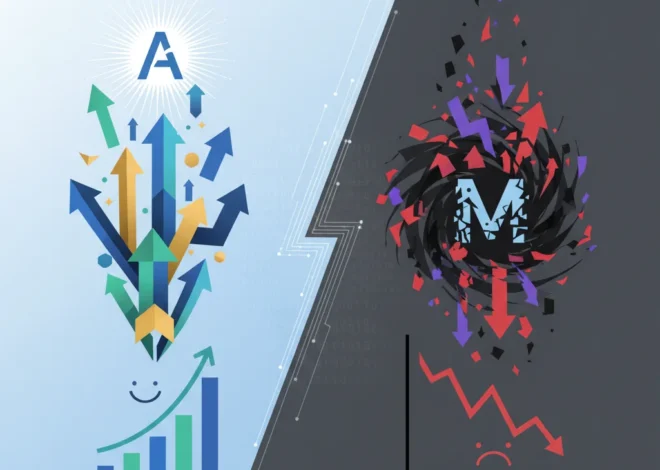
The $30 Billion Silence: Why Exxon’s Canceled Briefing in Mozambique Spells Trouble for Global Energy Investing
In the world of high-stakes corporate finance, silence is rarely golden. When a giant like ExxonMobil abruptly cancels a much-anticipated briefing on a cornerstone project, it sends ripples through the stock market and C-suites worldwide. This is precisely what happened with Exxon’s planned update on its colossal $30 billion liquefied natural gas (LNG) project in Mozambique. The cancellation wasn’t just a scheduling conflict; it was a potent symbol of a crisis brewing at the volatile intersection of global energy demand, massive capital investment, and a brutal, escalating insurgency.
The project, located in Mozambique’s northern Cabo Delgado province, represents one of the largest single investments in Africa’s history. It promises to transform Mozambique’s economy and reshape the global energy map. Yet, this promise is held hostage by a violent conflict that has already forced French energy major TotalEnergies to halt its own neighboring project and has now cast a long shadow over Exxon’s plans. For investors, finance professionals, and business leaders, Exxon’s silence is a critical signal. It forces us to ask a difficult question: How do you price geopolitical risk when human lives and billions of dollars hang in the balance? This is more than a story about one project; it’s a case study in the evolving landscape of global investing, where ESG concerns, security analysis, and traditional economics collide.
The Golden Ticket: Mozambique’s LNG Dream
To understand the gravity of the situation, one must first grasp the sheer scale of the opportunity. The Rovuma Basin, off the coast of northern Mozambique, holds an estimated 180 trillion cubic feet of natural gas—enough to meet the entire energy demand of a country like the UK for decades. Harnessing this resource through LNG projects, where gas is cooled to a liquid state for easier transport, was hailed as a ticket to prosperity for one of the world’s poorest nations.
The economic projections were staggering. The projects were expected to double Mozambique’s GDP, create tens of thousands of jobs, and pour billions into government coffers, funding critical infrastructure and social programs. For the global economy, Mozambique was set to become a new, vital source of LNG, particularly for energy-hungry nations in Asia and a European market desperately seeking to diversify away from Russian gas. This potential triggered a flood of foreign direct investment, with ExxonMobil and TotalEnergies leading two separate but co-located mega-projects. The world of international finance and banking mobilized, underwriting a future built on Mozambican gas.
The Insurmountable Obstacle? The Cabo Delgado Conflict
The dream, however, ran headfirst into a nightmare. Since 2017, the Cabo Delgado province has been ravaged by an insurgency led by a group known as Ansar al-Sunna, which has since pledged allegiance to ISIS. The conflict has been marked by extreme brutality, leading to the displacement of nearly a million people and the deaths of thousands. This isn’t a distant threat; it’s a direct assault on the region where these multi-billion-dollar investments are located.
The situation reached a crisis point in March 2021 when insurgents launched a coordinated attack on the town of Palma, just kilometers from the LNG construction sites. The assault forced TotalEnergies to declare force majeure—a legal clause absolving a company from its contractual obligations due to unforeseeable circumstances—on its $20 billion Mozambique LNG project, evacuating all personnel and grinding work to a halt. Exxon’s Rovuma LNG project, while not yet in its main construction phase, was immediately put on indefinite hold. The recent cancellation of its briefing, as reported by the Financial Times, suggests that despite efforts by Mozambican and allied regional forces to secure the area, the underlying risks remain unacceptably high.
To clarify the complex landscape, here is a snapshot of the key projects and the challenges they face:
| Project | Lead Operator | Estimated Investment | Current Status | Primary Risks |
|---|---|---|---|---|
| Mozambique LNG (Area 1) | TotalEnergies | $20 Billion | On Hold (Force Majeure) | Proximity to conflict, supply chain security, personnel safety |
| Rovuma LNG (Area 4) | ExxonMobil | $30 Billion | Delayed (Final Investment Decision) | Regional instability, escalating insurgency, investor uncertainty |
| Coral Sul FLNG (Area 4) | Eni / ExxonMobil | $7 Billion | Operational | Floating offshore platform provides insulation from onshore conflict |
Decoding the Silence: A Signal to the Stock Market
Exxon’s decision to cancel its briefing is a calculated act of corporate communication. In the absence of positive news, saying nothing is often the most prudent strategy. It prevents executives from having to make public commitments they cannot keep or from painting a grim picture that could send the company’s stock tumbling. For those in finance and trading, this silence is a clear indicator that the “risk-off” sentiment for this project prevails. It signals that the internal hurdles—be they security, financial, or reputational—for sanctioning the project’s main phase have not been cleared.
The pressure comes from multiple angles:
- Shareholder Value: A $30 billion expenditure requires absolute certainty. With the project stalled, that capital is effectively frozen, not generating returns, and creating a drag on the company’s financial outlook.
- ESG Mandates: A growing number of institutional investors operate under strict Environmental, Social, and Governance (ESG) mandates. Investing in a project in a conflict zone where human rights abuses are rampant is a massive red flag. Aid groups have warned that a restart could “inflame tensions”, a headline no modern corporation wants.
- The Banking Perspective: The consortium of banks and financial institutions that would fund such a project are also conducting their own risk assessments. The ongoing instability makes securing favorable financing incredibly difficult, adding another layer of economic friction.
The End of an Era: Navigating the "Messy" Transition to a Post-American World
The Ripple Effect on the Broader Economy
The delays in Mozambique are not happening in a vacuum. They create significant shockwaves for the national and global economy. For Mozambique, the dream of economic transformation is deferred, potentially turning into a nightmare of national debt taken on in anticipation of gas revenues that may not materialize for years. The country’s entire macroeconomic framework is built around these projects, and the continued uncertainty jeopardizes its financial stability.
Globally, the delay tightens the LNG market. With Europe still weaning itself off Russian energy, any disruption to a major new supply source has an impact on long-term energy prices and security. The economics of global energy trading are finely balanced, and the absence of Mozambique’s projected output means buyers must compete more fiercely for existing supplies, potentially keeping prices elevated. This illustrates a fundamental principle of modern economics: a localized conflict can have far-reaching consequences for international markets.
This is where the conversation expands to include innovative approaches. While not yet a major factor in this specific project, the challenges in Mozambique highlight the need for greater transparency and security in project finance. In the future, financial technology, or fintech, could play a role. Imagine a world where blockchain technology is used to create transparent, immutable records of payments to local communities and governments, helping to mitigate corruption—a key grievance that can fuel insurgencies. While a long way off, the failures in places like Cabo Delgado are forcing the banking and financial technology sectors to think about new tools for managing risk in complex environments.
The State Strikes Back: Why the Nexperia Takeover Signals a New Era for Global Investing
Conclusion: The New Frontier of Financial Risk
ExxonMobil’s canceled briefing is more than a footnote in a quarterly report. It is a stark reminder that in the 21st century, the biggest risks to multi-billion-dollar investments may not come from market volatility or technological hurdles, but from deep-seated social and political instability. The situation in Mozambique is a crucible for the future of energy investing.
For investors, the key takeaway is the critical need to integrate sophisticated geopolitical and social risk analysis into financial modeling. For business leaders, it is a lesson in the importance of a social license to operate—one that goes beyond government permits and extends to the communities directly impacted by their operations. As the world navigates a complex energy transition and an increasingly fractured geopolitical landscape, the ability to understand and mitigate these non-traditional risks will be what separates successful long-term investments from costly failures. The silence from Exxon speaks volumes, and what it’s telling us is that the old rules of finance are no longer enough.

